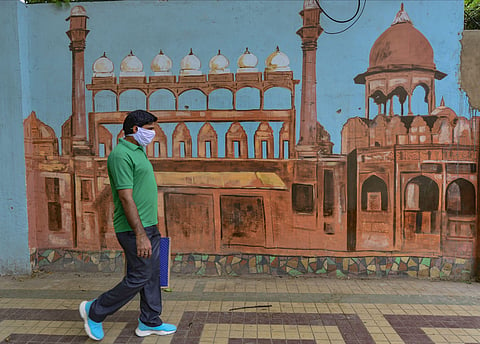

NEW DELHI: A day after announcing a breakthrough in developing rapid antibody testing kit for COVID-19, the Union health ministry, on Monday, issued a protocol for facility-based population sero survey in all 733 districts in the country to assess the percentage of people exposed to SARS CoV-2.
"There is a need to establish systematic surveillance for SARS-CoV-2 infection in all districts of country. This surveillance will be in addition to the routine testing as per current testing guidelines,” said the health ministry.
The surveillance, which many experts feel has already been delayed as the number of confirmed COVID-19 cases has reached nearly 68,000 in India, is likely to be rolled out within the next few days.
According to the surveillance protocol, 200 samples will be collected from 10 health facilities -- six government and four private -- in each district every week to test for the presence of virus or its antibodies in people who might have recovered.
The survey will be implemented by the state health departments' Indian Council of Medical Research institutes, National Centre for Disease Control, Indian Disease Surveillance Programme, community medicine departments of medical colleges and public health institutes.
The samples are to be collected from 100 healthcare workers categorised as high-risk population, 50 outdoor patients without influenza-like symptoms and 50 pregnant women categorised as low-risk.
Both nasal and throat swabs and blood samples have been proposed to be collected as the testing methods will include both RTPCR and ELISA anti-SARS-CoV-2 human IgG ELISA test to detect the presence of antibody in blood.
On Sunday, the government said that the National Institute of Virology, Pune has developed the first antibody test with 92 per cent sensitivity and 97 percent specificity in India using virus samples isolated from patients in the country and also said the kits were validated at two sites in Mumbai.
The government has transferred the technology to pharma major Zydus Cadila that will manufacture the kits at mass scale.
The health ministry said that for RTPCR tests samples should be tested in an onetime pool of 25 and the results of this sample pooling are only for surveillance purposes and not for a diagnosis.
In later rounds, IgG ELISA based testing of serum samples will replace RTPCR based testing for surveillance purposes.
"The data will be analyzed locally for action using standard indicator formats. Indicators for person, place, time and trend analysis will be made," said the protocol.
ALSO SEE: